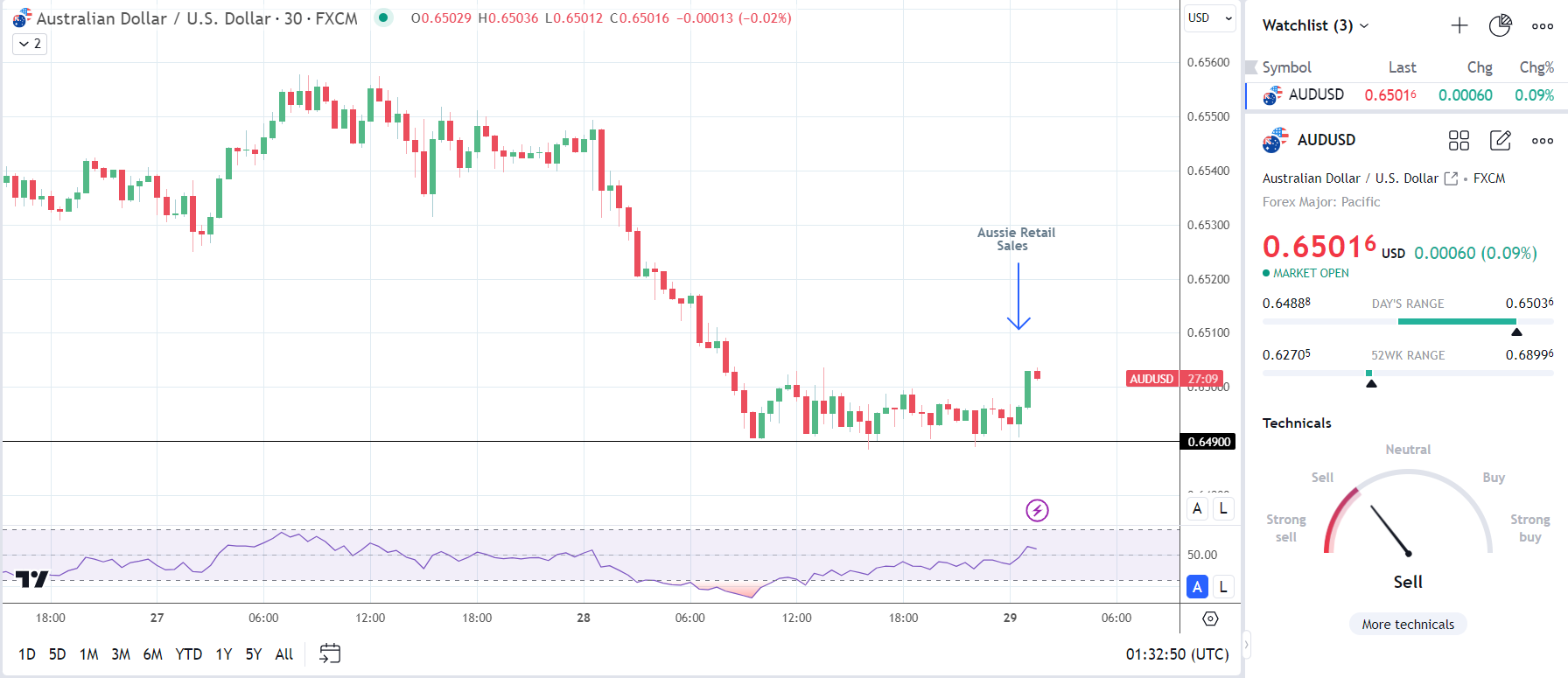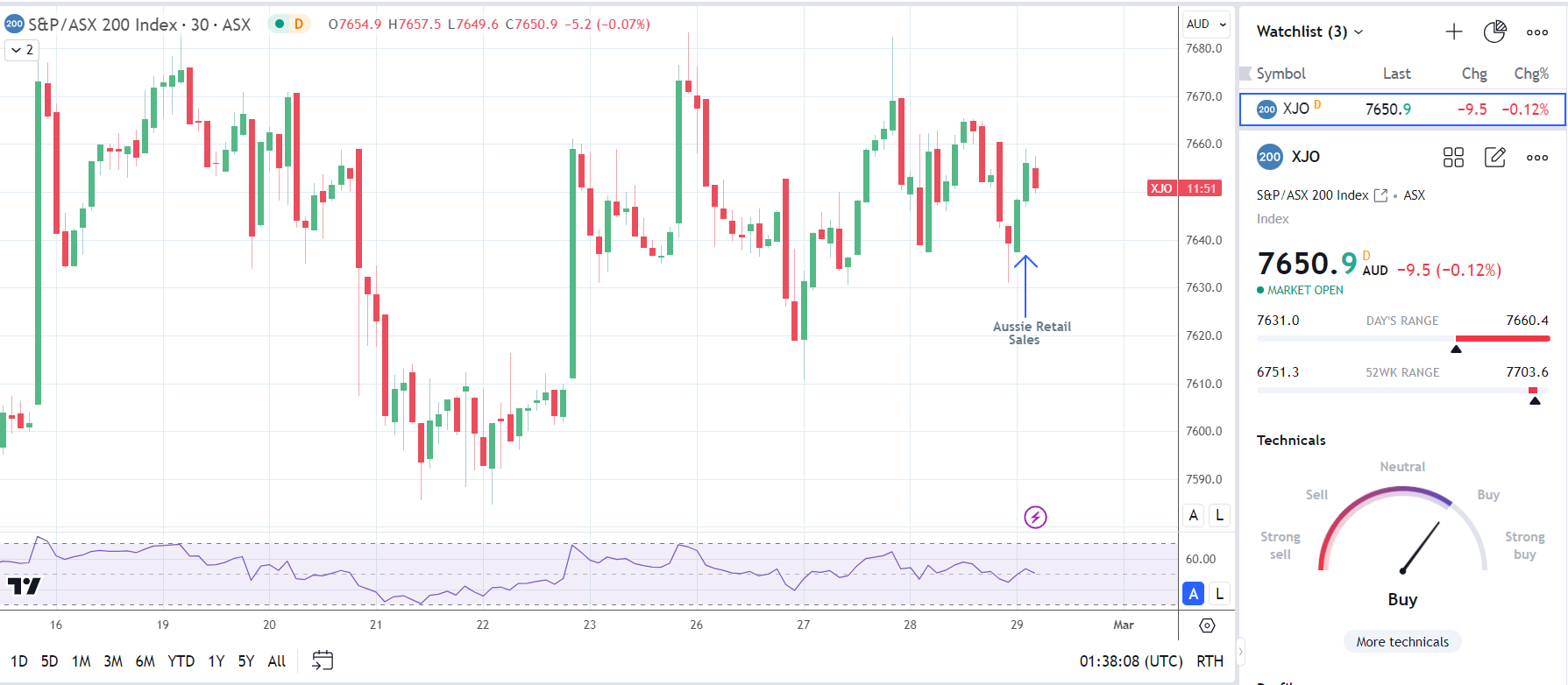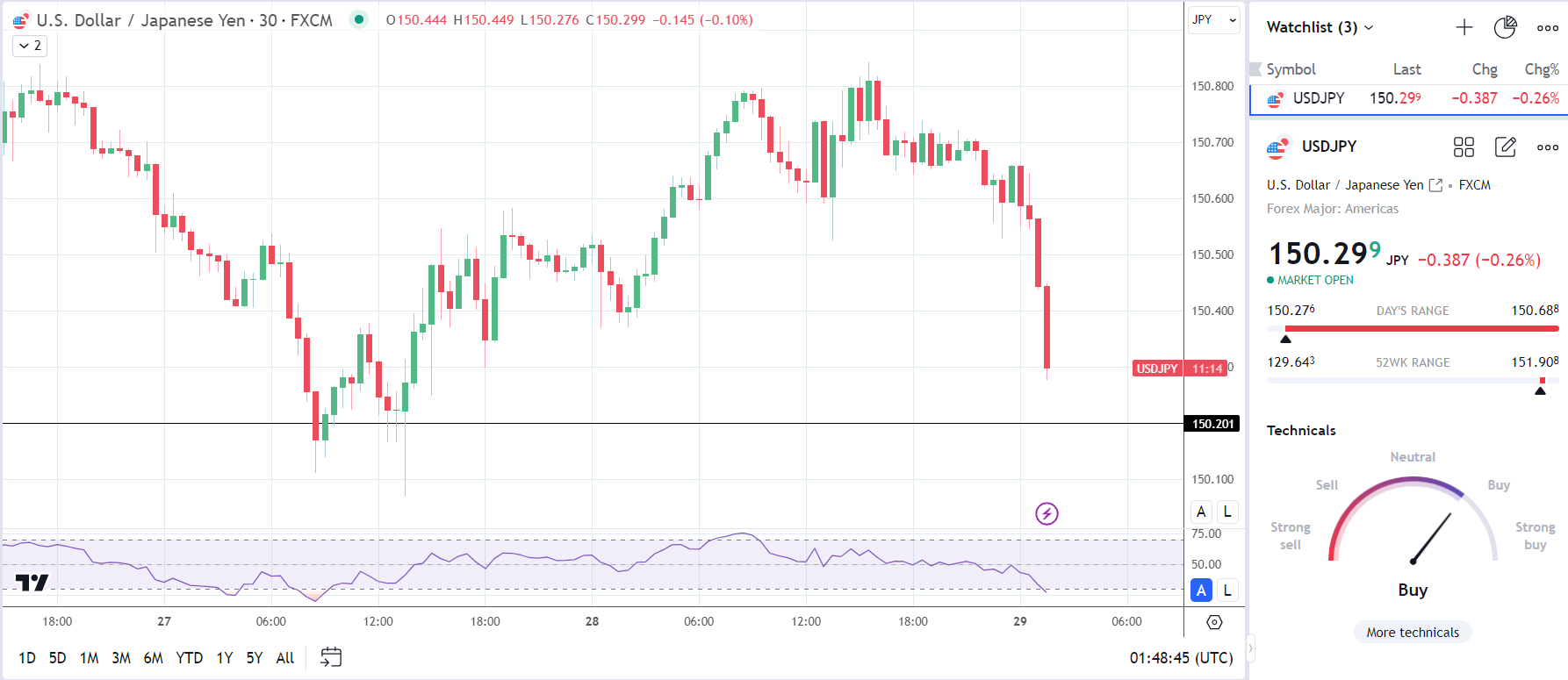
Following Australian inflation data earlier in the week, attention shifted to the retail sales report.
Retail sales saw a rebound of 1.1% in January, following a 2.1% decline in December, slightly below economists' expectations of a 1.5% increase. Key highlights include:
According to Ben Dorber, Head of Retail Statistics at ABS:
The Australian dollar initially dipped to $0.64906 but later surged to $0.65036 post-report. Conversely, the ASX 200 slid by 0.12% to $7,650.9, mirroring US market losses amid concerns about inflation and Federal Reserve policies impacting consumer demand.

AUDUSD 30 Minute Chart 290224

ASX200 30 Minute Chart 290224
Amid apprehensions about US inflation figures, the USD/JPY faced downward pressure, dropping by 0.26% to 150.299.
Retail sales data from Japan supported expectations for a potential Bank of Japan policy pivot from negative rates. January witnessed a 0.8% month-on-month increase, following a 2.9% slump in December.
The weaker USD/JPY adversely affected the Nikkei, which declined by 0.33% during the morning session, reflecting market sentiment amid anticipation of US inflation data.

USDJPY 30 Minute Chart 290224

Subscribe to our daily newsletter and get the best forex trading information and markets status updates
Trade within minutes!
Comment (0)